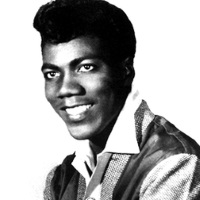
Don Covay, the immensely talented singer and songwriter whose music was a staple on the R&B charts for much of the 60s and 70s, has reportedly died at age 76. Born in 1938 in Orangeburg, South Carolina as Donald Randolph, he was the son of a Baptist preacher. Covay sang Gospel music after the family moved to Washington D.C. following his father’s death.
In the late 50s, Covay began singing R&B music with a group called The Rainbows, before he joined the Little Richard Revue. Little Richard produced Covay’s early work, including several middling charters. Covay wrote the song “Pony Time” and recorded it, but it was a later version by Chubby Checker that shot to #1. The success of that song opened up plenty of songwriting opportunities for Covay, who wrote hits for Solomon Burke ("I'm Hanging Up My Heart for You"), Gladys Knight & The Pips ("Letter Full of Tears"), Aretha Franklin (“Chain of Fools”) and more.
Don Covay, the immensely talented singer and songwriter whose music was a staple on the R&B charts for much of the 60s and 70s, has reportedly died at age 76. Born in 1938 in Orangeburg, South Carolina as Donald Randolph, he was the son of a Baptist preacher. Covay sang Gospel music after the family moved to Washington D.C. following his father’s death.
In the late 50s, Covay began singing R&B music with a group called The Rainbows, before he joined the Little Richard Revue. Little Richard produced Covay’s early work, including several middling charters. Covay wrote the song “Pony Time” and recorded it, but it was a later version by Chubby Checker that shot to #1. The success of that song opened up plenty of songwriting opportunities for Covay, who wrote hits for Solomon Burke ("I'm Hanging Up My Heart for You"), Gladys Knight & The Pips ("Letter Full of Tears"), Aretha Franklin (“Chain of Fools”) and more.
Covay's singing career continued to falter until 1964, when he signed to the Rosemart label. His debut single there "Mercy Mercy" (accompanied by a young Jimi Hendrix on guitar), established his earthy bluesy style. Atlantic bought his contract, but, while several R&B hits followed, it was a year before Covay returned to the pop chart. "See Saw", co-written with Steve Cropper and recorded at Stax, paved the way for more hits.
Covay continued to record until the end of the 20th Century. Over the past few years age and illness had slowed him down.
While not a household name, Don Covay certainly had a major impact on R&B music of the second half of the 20th Century, and both his recordings and compositions will continue to please music fans for years to come.
Portions of this article licensed under the GNU Free Documentation License. It uses material from the Wikipedia article Don Covay
Thanks to Gary Van den Bussche of Disco, Soul, Gold for letting us know.
